How Many Languages Can One Person Speak?
Did you know there’s no Guinness World Record holder for “most number of languages spoken”?
Why this omission? The answer lies in the curious story of a Liberian-born language teacher, Zlad Youssef Fazah, and a Chilean TV chat show, Viva el lunes.
In 1973, Fazah was living in Brazil, which at the time was under a military dictatorship. Soldiers knocked on his door and demanded that he go with them.
“I felt sick with fear,” Fazah later recalled. “I thought I was being arrested as a spy.”
Fazah was interrogated for being a spy, even though he was just a humble language teacher. The soldiers had picked him up on the orders of the CIA. His interrogators wanted to know why a young man from the Middle East spoke Chinese and Russian. They asked: Who was he working for? Was he a Russian spy?
“I wasn't working for anyone, not in their sense,” Fazah says. “I was just really good at languages.”
“My language skills have not always brought good things,” he adds.
Until 1998, Fazah held the Guinness World Record for speaking 58 languages. That was until he appeared on Viva el lunes.
On the night of the show, the host surprises Fazah with a language test, with audience members (diplomats brought in from different embassies) asking him questions in various languages. When it comes to the questions in Finnish, Russian and Mandarin, Fazah looks visibly anxious. He asks that the questions be repeated more slowly. Then he asks that they be repeated again. With some questions, he stutters an answer. With others, he fails to answer at all. By the end of the show, the audience start to boo him.
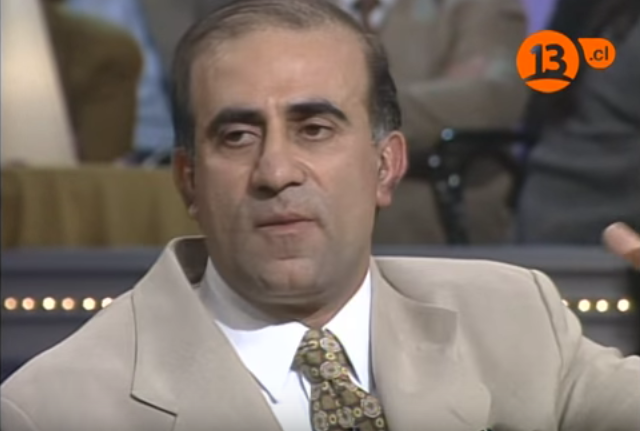
Thanks to YouTube, you can watch the full catastrophe unfold.
Nowadays, the Guinness Book of World Records no longer awards a place to the person who can speak the most languages. This is likely due to general confusion on the definition of fluency – and how difficult it is to test the claims of polyglots.
A few years ago, polyglot blogger Ryan Boothe gave Fazah the right of reply to his appearance on Viva el lunes. After a telephone interview with Fazah, Boothe wrote:
Before [Fazah] went on that Chilean program the producers had told him that he would simply be interviewed and not tested. He went to the studio finding that they had brought diplomats from many different countries that were going to test him in their native languages. A lack of preparation, nerves and jetlag got the better of Ziad and he responded incorrectly to a few of their questions. To this day he wishes he would have walked off the set instead of going on live TV..
Further:
The video on YouTube was edited to only show the incorrect responses and not the many correct responses that [Fazah] gave.
The controversy surrounding Fazah begs the question: How many languages is it possible for one person to speak?
Who Holds the Record For the Most Languages Spoken?
There are plenty of examples of people through history who have claimed to have held command over a staggering amount of languages.
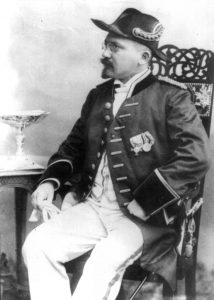
German diplomat Emil Krebs (1867-1930) made it his life’s quest to learn every language in the world. He reportedly spoke 65 languages and had a special and rather unique interest in translating the phrase “kiss my ass”, which he managed to do in 40 languages. His brain was examined by German neuroscientists in 2002, who reported it was different to other brains.
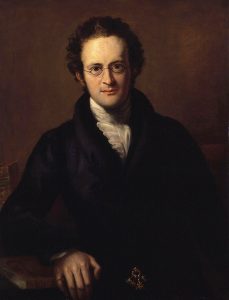
Sir John Bowring (1792-1872), the 4th Governor of Hong Kong was allegedly able to speak in over 100 languages. However, there exists no determinable proof of this claim, apart from reports from those who knew him that he held a lifelong passion for the study of language.
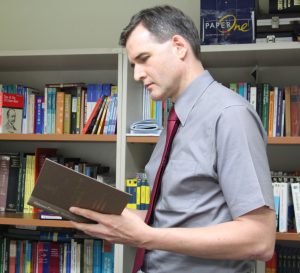
The most impressive living example of a hyperpolyglot is probably Alexander Arguelles, who has studied and to some degree understands around 50 languages. Alexander caught the language bug at university when he began studying German. From then on, he devoted himself to learning as many languages as he could in his lifetime. He notes that the further he goes with his learning, the easier languages come to him. When he first started learning Swedish he was able to hold a complex conversation within three weeks. Yet, he considers this an early stage of learning a language, with much work left to go.
” Climbing the mountain – achieving native fluency – is always going to take years.” – Alexander Arguelles
What Does it Mean to Be Fluent?
At which stage of language learning can we consider a person to be fluent? Is it when they can competently hold a conversation, or not until they can converse in far more complicated topics? Do we need tangible proof for each language these individual’s claim to speak, such as a CEFRL diploma?
I believe the idea of fluency comes down to the individual. For me, it was being able to speak confidently, with few hesitations or mistakes – aiming for about a 90-95% level of “perfection”, and for use specifically in common social situations. This “upper intermediate” level of B2 on the CEFR scale, is what most people think of when they imagine using their language – it's effectively social equivalency to your native language, with allowance for an accent and a few minor slips.
What you can do at the C levels is more for professional situations, and while I’ve achieved this myself in some languages enough to work as an engineer or translator, this is actually overkill for the vast majority of people, who want to live their normal (non-technical) lives through the language. The way we use the language the majority of our time interacting with people is fluency to me, and anything beyond that is “mastery”.
While having a C2 diploma in Spanish is great, I honestly haven't used mastery level Spanish much since I stopped working in engineering and translation, but I continue to use fluent level Spanish regularly in social settings. The same goes for my C2 French, and my C1 German.
The way I’ve worked towards fluency has involved putting down the textbooks and learning to speak from day one until I reach upper-beginner (A2) to lower-intermediate (B1), and then to hit the books and get more formal lessons, to “tidy up” what I have until I have a more solid command of the language. It’s a method I’ve used for every single language I’ve learned and the one I credit the most to my success.
How many languages?
Using this approach I can personally speak in seven languages at a fluent level (as I've described above) or higher. I can also get by pretty well in a bunch more, but when asked “How many languages do you speak?” (and I get asked that a lot!!), I never give a simple number, since it's not a simple question 🙂
My answer is always that it depends on how you define “speak”, and then I give a quick definition of my understanding of fluency and say that based on that I speak 7 languages, but I can get by in a bunch more.
Zlad's unfortunate experience is always in the back of my mind whenever I'm being interviewed on TV or radio, which is why I try to watch my words whenever possible. I would almost always insist on being interviewed in just one language (and am happy to do that in non-English languages, as I was in Spanish and Irish and a few other languages on the radio), since that is the only useful language for anyone listening.
It's not really a question that does well either way on media.
First, it's too easy to exaggerate your skills in a short spot and make people think you can do what you truly can't. I've never felt embarrassed or booed off stage, but I did actually feel genuinely terrible after one interview when the direction it went in was such that I said a random phrase in Quechua that I still remembered. I realized too late that we had gone in a direction such that the conclusion of the interview was “you're a very impressive man, Benny Lewis!”
I hated it – I had wanted to make an impression on inspiring some listeners to dive into their own language projects, that it's easier than they think, and that they aren't too old, and instead I had just been a easily forgotten little spot between channel hopping. This to me is genuinely the worst interview I've ever done and to this day I still feel guilty about it.
CEFRL certificates are probably the best way to “prove” that you speak a language, but it doesn't make for good TV or radio to follow along with someone in silence (apart from the listening comprehension and oral exam) for 3+ hours, then wait 2 months until a certificate comes in the mail 🙂 I can't see that ever working on prime time TV…
But then it's also bad the other way, and someone who genuinely can speak multiple languages could get totally embarrassed, as we've seen.
How would I do in a live test?
The worst that's happened to me so far is that I've been put on the spot to translate random words on live radio. I actually have Zlad to thank for his “worst case scenario” experience being in the back of my mind, and to downplay my skills whenever possible and have a way more useful goal on media. A TV show may invite me to entertain their audience and boost their ratings, but I don't care about that. For me it's a platform to inspire new learners, not to impress people flicking between stations, who'll forget it in 5 minutes.
Luckily, thanks to plenty of experience now, I am very confident in interviews and can change the direction it's going in, even though I'm the interviewee. When I got asked once to translate “caterpillar” into all my languages (seriously?), I said quite honestly that I'm here to inspire beginners to consider learning a language themselves, not to try to impress people. Rather than play along, I told them honestly that I would fail that test miserably, since I'm not a walking dictionary and blurting out random words in completely different languages is not a skill I possess.
To avoid any awkwardness, I quickly changed direction and gave a tip for how anyone listening could learn foreign words like caterpillar, citing oruga as an example in Spanish, and gave a quick mnemonic suggestion. From here I could segway into my best encouragement for people who may think they have a bad memory, or are too old.
Inspiring learners was why I was on the air after all, and with usually just 3 minutes to do it, I stop silly questions in their tracks and turn them into opportunities to be useful to anyone listening 😉
However, there are many other individuals who employ the use of other methods with inspiring results, in the language learning world.
Let’s take a look at a collection of polyglots from around the globe – their stories, what inspired them to take up language learning and what you can learn from them.
Richard Simcott: The Multilingual Ambassador with a Language Addiction
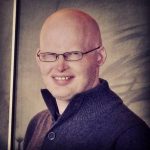
“Language carries the culture of the country that uses it and when you internalise it, it becomes a part of you too.” – Richard Simcott
Richard Simcott’s fascination with languages started as a child. At school he began studying languages and there started an addiction that he knows will continue on for the rest of his life.
Richard has studied more than 40 languages over the years and can speak in over 16 (English, French, German, Spanish, Italian, Portuguese, Polish, Latvian, Russian, Macedonian, Norwegian, Swedish, Chinese and Ladino, to name a few!). His love of learning languages has led him to be named the ‘Multilingual Ambassador’ for the Goethe Institut, as well as founding the Polyglot Conference. He is also raising his daughter to be multilingual – regularly speaking to her in English, French, German and Spanish.
Richard makes a point to study languages every day, anywhere from a single hour, up to eight. He also likes to visit a country with native speakers of whichever language he may be learning at the time, as he believes immersion is a key factor in making things stick.
Richard notes that his greatest struggle with language learning is time. Along with juggling his day to day responsibilities of parenthood, work and university study, he feels there never will be enough time to learn all he wants in life, but he will continue on with his language learning until his body can no longer take it.
Susanna Zaraysky: “Language is Like Music”
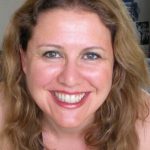
“For me, the key to learning is being able to listen – paying attention to patterns, the fluctuations of speech and the emphasis in the words. I listen to foreign languages as though they are songs – and that's how I remember words and the melody of speech.” – Susanna Zaraysky
Susanna Zaraysky began learning languages from an early age. Her family left the Soviet Union when she was three, immigrating to the United States, where she was forced to learn English quickly. She went on to study nine other languages (French, Spanish, Italian, Portuguese, Serbo-Croatian, Ladino, Hebrew, Arabic and Hungarian) and has travelled to over 50 countries.
She notes that while vocabulary and grammar are essential factors to language learning, it is important to supplement your studies with accompanying resources that make learning fun. She believes using TV, radio, music and film as additions to your language lessons reinforces the basic cornerstones of what you are already having to learn.
Susanna in particular cites music as being a key part of her language learning, saying it’s the perfect way to improve your accent, pronunciation, timing and grammar. Above all, she believes that the most important part of learning language is how it makes you feel. She states that she has a different way of expressing herself, depending on which of her languages she is speaking, a side effect of being a polyglot that enriches her life.
Alex Rawlings: Britain’s Most Multilingual Student

“Languages are an asset for whatever you want to do in life. They open your mind to worlds you never knew were there. They introduce you to amazing people that you might otherwise have just walked by.” – Alex Rawlings
In 2012, a competition was held across the UK to discover Britain’s most multilingual student. Alex Rawlings, age 20, tested for fluency in 11 different languages (English, Greek, German, Danish, Russian, Hebrew, Catalan, Italian, French, Afrikaans and Spanish), before taking out the coveted title.
Since graduating from Oxford, he has been leading the nomadic lifestyle (much like myself), travelling and living across Europe as he adds more languages to his arsenal, such as Hungarian and Serbian. He now teaches languages and both attends and runs polyglot events.
Alex has succeeded in learning languages largely because he discovered a way that worked for him. He notes that most people who study languages in an academic setting don’t really learn them – they are taught them. Once you’ve finished the subject pass or fail, you’ll probably forget whatever it was you’ve learned for the rest of your life.
To gain any kind of success in learning languages, Alex had to find a way that worked for him. Immersion has been a key factor in his success. His first language was Greek, which he began learning due to his heritage – growing up with a Greek mother. As a keen traveller, he’s happily travelled to and spent time in countries, which have languages of interest to him.
Now that he has figured out a way of language learning that suits him, he is able to apply this method to go on to become fluent in others, as he proved when he moved to Budapest to learn Hungarian.
I onced asked Alex how he manages to compartmentalise his languages, to not mix them up when speaking and keep them fresh in his memory. He said that as he is a visual person, he pictures his languages as having something to do with weather – Russian in his head is cold and Spanish makes him think of the beach. Focusing on these images helps him stick to whichever language he is speaking at the time.
Luca Lampariello: Languages Cannot Be Taught – They Can Only Be Learned
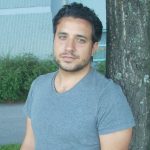
“I’m constantly exploring in the languages I’ve learned through the written word, and this exploration helps me to connect the dots.” – Lucas Lampariello
Italy is a country that is infamous for being monolingual – yet Luca Lampariello has managed to reach a high level in ten languages (Italian, English, French, German, Spanish, Swedish, Russian, Dutch, Portuguese and Mandarin Chinese), studying many of them while living in his home country.
His breakthrough in language learning came at the age of 10, when his mother hired an American tutor who guided him through the English language, rather than just teaching it. He found that he had the greatest success through reading and being OK with making mistakes – taking up the ultimate challenge of completing Steven King’s novel “It” in English, despite his learning level at the time (and age!).
He found that although reading helped build his vocabulary, it went a step further in helping his comprehension by putting words it into context.
The One Characteristic All Polyglots Share
From all the polyglots mentioned above, one thing becomes abundantly clear. Each individual, through trial and error, found a method of language learning that worked for them. They then continued to apply this method again and again as they went on to learn multiple languages.
If you want to be successful in language learning, you will need to do the same.
Experiment. Don’t be scared to try new approaches, if you find others don’t work as well for you. You’ll soon discover the way that works best. And from there… who knows how many languages you could learn? The sky’s the limit.



Social